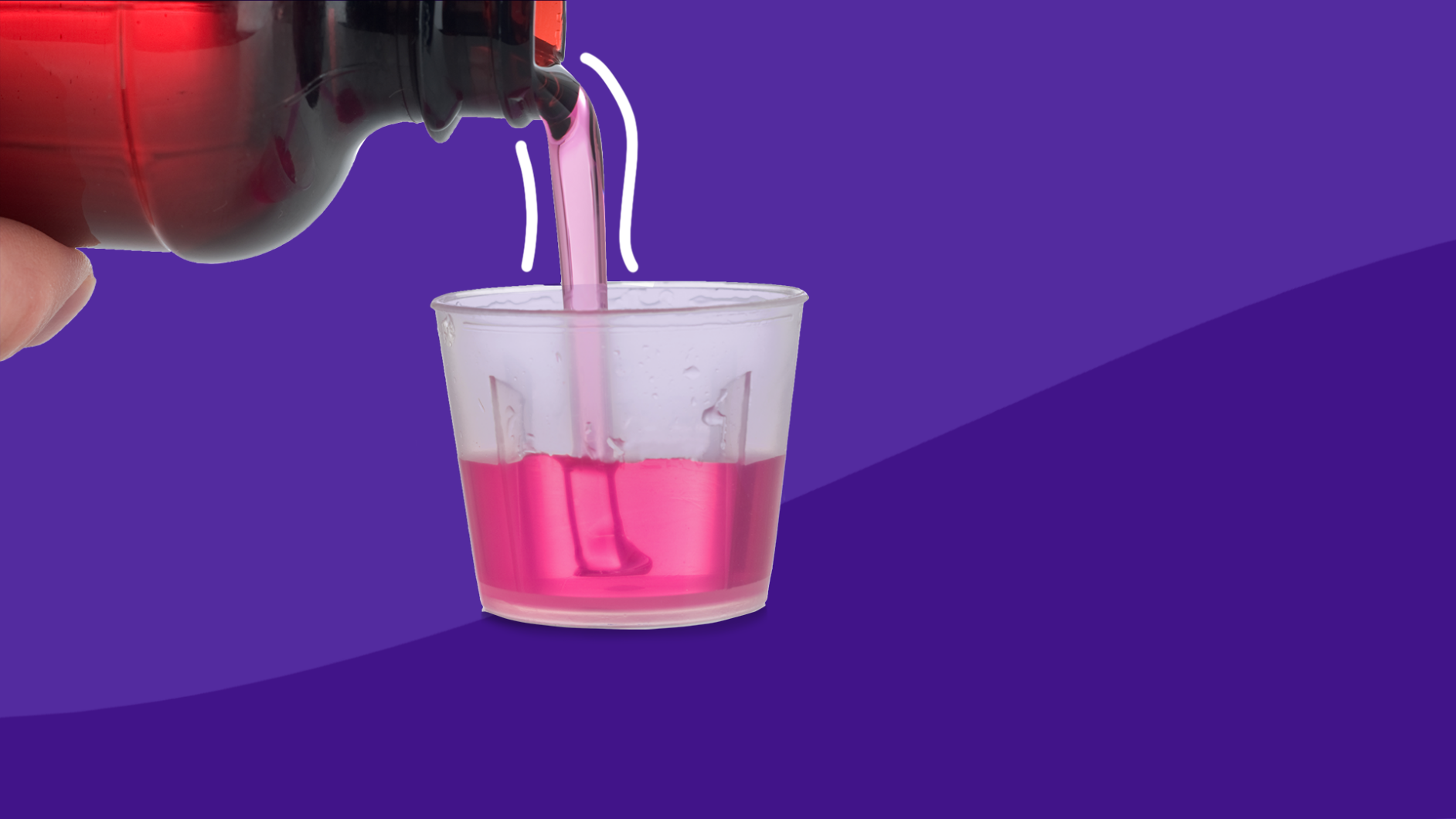Key takeaways
Promethazine is an antihistamine commonly used to treat allergic reactions and motion sickness. It can also help with sedation and pain before or after surgery.
Unlike some other antihistamines, promethazine also has anticholinergic and antidopaminergic effects. It can cause drowsiness and should not be taken with alcohol or other sedatives.
Certain drugs, such as barbiturates, benzodiazepines, and other medications that depress the central nervous system, can increase the sedative effects of promethazine. Promethazine may also interact with other drugs like monoamine oxidase inhibitors (MAOIs), anticholinergics, and herbal supplements like valerian and evening primrose.
Caution is advised when taking promethazine in combination with other medications. Oversedation, respiratory depression, and other serious side effects can occur.
If considering taking promethazine, or if already on it, always consult a doctor or a healthcare provider about potential interactions and how best to manage them. Steer clear of tasks demanding mental alertness, such as driving, until you know the medication’s effects.
Drug interactions | Food interactions | Other interactions | Avoiding interactions | When to see a doctor
Promethazine, often known by its brand name Phenergan, is an antihistamine medication used to treat allergy symptoms, such as itchy eyes, sneezing, and runny nose. It is also prescribed to reduce pain or anxiety and induce sedation in individuals undergoing surgery. In addition, it is FDA-approved to treat anaphylaxis (alongside other medications) and nausea or vomiting from motion sickness. Promethazine is part of a class of drugs called phenothiazines and is chemically similar to chlorpromazine. It works by blocking the receptors and effects of histamine, dopamine, and acetylcholine chemicals. While promethazine can be an effective medication, it may interact with prescription drugs, over-the-counter medications, and herbal supplements. Therefore, it’s important to discuss any medications being taken with a healthcare provider before taking promethazine. Read on to learn about potential drug interactions with promethazine, the possible consequences, and how to minimize the risk.
Promethazine-drug interactions
Promethazine can interact with various classes of medications, both prescription and over-the-counter drugs, that have similar effects. The main consequence of these drug interactions is an increased risk of side effects of promethazine.
Tricyclic antidepressants
Tricyclic antidepressants may interact with promethazine, potentially leading to increased sedation and drowsiness. This interaction could be severe and may require medical attention. Examples of tricyclic antidepressants include:
- Elavil (amitriptyline)
- Tofranil (imipramine)
- Pamelor (nortriptyline)
If one is taking a tricyclic antidepressant and is prescribed promethazine, consult a healthcare provider to determine whether any current medications need adjustments. They may recommend an alternative to promethazine or adjust the dosage of the antidepressant.
Benzodiazepines
Benzodiazepines are another class of medications that can interact with promethazine. This interaction may result in increased sedation, drowsiness, and potentially severe central nervous system (CNS) depression. Common benzodiazepines include:
If taking a benzodiazepine and need to use promethazine, tell a healthcare provider, as the doses of one or both medications may need to be reduced. In some cases, a doctor may recommend an alternative to promethazine.
Barbiturates
Barbiturates can also interact with promethazine, leading to increased drowsiness, sedation, and potentially severe CNS depression. Some examples of barbiturates include:
- Luminal (phenobarbital)
- Seconal (secobarbital)
- Nembutal (pentobarbital)
A healthcare provider may adjust the doses of medications or recommend an alternative to promethazine if taking promethazine with a barbiturate.
Opioids
Opioids are a class of strong pain-relieving medications that can interact with promethazine. The interaction may result in increased sedation, drowsiness, CNS depression, and respiratory problems. Taking promethazine with opioids may also increase the risk of seizures, especially in people with a history of seizures. Examples of opioids include:
- Vicodin (hydrocodone)
- Percocet (oxycodone)
- Kadian (morphine)
- Actiq (fentanyl)
- Codeine
If taking an opioid medication and are prescribed promethazine, a healthcare provider will likely reduce the dosage of the opioid.
Antipsychotics
Promethazine can interact with antipsychotic medications, potentially leading to increased adverse effects, such as sedation, drowsiness, and CNS depression. In addition, combining promethazine with antipsychotics can increase the risk of neuroleptic malignant syndrome (NMS), a rare but serious side effect that can cause changes in blood pressure and heart rate. Examples of antipsychotics include:
If taking an antipsychotic and are prescribed promethazine, a healthcare provider may adjust the dosage of an antipsychotic dosage or recommend an alternative to promethazine.
Anticholinergics
Anticholinergic drugs may interact with promethazine, leading to potential side effects like increased drowsiness, confusion, blurred vision, constipation, and dry mouth. Examples of anticholinergic medications include:
- Cogentin (benztropine)
- AtroPen (atropine)
- Toviaz (fesoterodine)
Inform a healthcare provider before using an anticholinergic drug. They may need to adjust the dosages of any current medications or suggest an alternative treatment.
Monoamine oxidase inhibitors
Monoamine oxidase inhibitors (MAOIs) are a class of antidepressants that can interact with promethazine, leading to extrapyramidal side effects. Involuntary movements, tremors, and rigidity characterize these side effects. Some examples of MAOIs include:
- Nardil (phenelzine)
- Parnate (tranylcypromine)
- Marplan (isocarboxazid)
Taking promethazine along with MAOIs should be done with caution. Consult a healthcare provider for guidance on appropriate treatment options.
Epinephrine
Promethazine may interact with epinephrine, a medication commonly used to treat severe allergic reactions. This interaction can decrease epinephrine’s effect, making it less effective in reversing symptoms such as hypotension (low blood pressure).
Promethazine-food interactions
Promethazine can be taken before meals to help with gastrointestinal discomfort. It is recommended that promethazine be given with food, water, or milk to decrease an upset stomach when administered by mouth.
Promethazine and caffeine
There is limited information on the interaction between promethazine and caffeine. In general, consuming moderate amounts of caffeine, like a cup of coffee, is unlikely to cause significant issues for most people. However, if taking promethazine for its sedative effects, caffeine may counteract these effects, potentially reducing the effectiveness of promethazine.
Promethazine and alcohol
Promethazine can interact with alcohol, leading to increased drowsiness and dizziness. It is not recommended to consume alcohol while taking promethazine due to the potential risk of severe drowsiness and respiratory depression. Limiting or avoiding alcohol while on promethazine could help reduce the risk of complications.
Other promethazine interactions
Promethazine may interact with dietary supplements and herbal remedies, which may lead to increased side effects or other complications. In addition to prescription drugs and over-the-counter medications, promethazine may interact with the following:
- Evening primrose: Evening primrose oil is sometimes taken for its potential benefits in reducing symptoms of conditions like eczema or premenstrual syndrome. However, it is not recommended to mix evening primrose oil with phenothiazines like promethazine due to the increased risk of seizures.
- Passionflower: Commonly used as a natural remedy for anxiety or insomnia, passionflower may have sedative effects. Combining it with promethazine, which also has sedative properties, could result in increased drowsiness or other CNS depressant effects.
- Valerian: Valerian root is another herbal supplement known for its calming and sleep-promoting effects. Similar to passionflower, using valerian with promethazine might intensify the sedative effects of the drug, leading to increased drowsiness or slowed responses.
Discuss any dietary supplements or herbal remedies being taken with a healthcare provider to ensure they’re safe to use alongside promethazine.
Lab test interactions
If undergoing certain lab tests while taking promethazine, the results might be affected. Specifically, pregnancy tests based on immunological reactions might show false-negative or false-positive results. Promethazine has also been reported to increase blood sugar levels, which could affect the accuracy of glucose tolerance tests.
Other considerations
When taking promethazine, there are other factors to consider. If any of the following conditions exist, discuss them with a healthcare provider:
- Respiratory disorders: Promethazine may carry an increased risk of breathing problems, especially in people with chronic respiratory disorders like asthma, chronic obstructive pulmonary disease (COPD), and sleep apnea. It’s recommended to avoid this medication if any of these conditions exist.
- Seizure disorders: If a history of seizures or epilepsy is present, there might be an increased risk of more seizures when taking promethazine. Discuss any seizure history with a healthcare provider before starting this medication.
- Bone-marrow depression: If one has what’s known as bone-marrow depression or other blood-related disorders, caution may be needed. Promethazine can further suppress bone marrow function and lead to potential problems, such as decreased platelets (thrombocytopenia) and white blood cells (leukopenia).
- Heart rhythm problems: Caution may be needed if one has a history of heart rhythm disorders. Promethazine can cause a slow or fast heart rate, which may worsen heart rhythm problems.
- Liver problems: The liver processes promethazine, so if liver conditions exist, dosages may need to be adjusted, or the medication may need to be avoided altogether. People with liver impairment may not be able to break down promethazine, which could lead to high levels of promethazine in the body. Jaundice has also been reported in people taking promethazine.
- Pregnant or breastfeeding: Animal studies have shown that promethazine may cause harm to an unborn baby. It is not known whether promethazine passes into breast milk. Promethazine should only be taken while pregnant or breastfeeding if the benefits outweigh the risks.
- Use in children: Promethazine tablets and suppositories are not recommended for children under the age of two due to the risk of fatal respiratory depression. In addition, antiemetics like promethazine are not recommended to treat vomiting in children, according to the black box warnings on the FDA label.
Be certain to tell a healthcare provider if conditions such as narrow-angle glaucoma, enlarged prostate, certain stomach ulcers, or problems with bladder blockage exist, as promethazine may worsen these conditions. Medication regimens may need to be adjusted, or additional precautions may be needed if any medical conditions are present. A complete medical history should be discussed with a healthcare provider before taking promethazine.
How to minimize promethazine interactions
Consulting a healthcare provider before taking promethazine, especially if taking other medications, is the first step in minimizing interactions. The healthcare provider can assess the potential risks and benefits of taking promethazine alongside other medications to determine if it’s safe. Always keep a complete list of all medicines being taken, including:
- Prescription medications
- Over-the-counter drugs
- Herbal supplements
- Vitamins and minerals
The healthcare provider may adjust dosages, discontinue medications, or recommend alternative treatment options if there is a risk for promethazine drug interactions. People should closely follow medical advice from a healthcare provider to avoid potential complications.
It is also essential to be aware of warning signs of drug interactions while taking promethazine. Common warning signs may include unexpected side effects, changes in the effectiveness of promethazine, and the onset of new symptoms or worsening of existing symptoms. Should one experience any of these signs, contact a healthcare provider immediately.
When to talk to a healthcare provider about promethazine interactions
Consult with a healthcare provider if concerns about using promethazine alongside other sedatives, substances that might increase drowsiness or drugs that could affect its efficacy are present. In addition, tell a healthcare provider if unusual reactions are experienced, such as intense drowsiness or trouble breathing while using promethazine, as these may indicate an adverse interaction.
Other reasons to speak with healthcare professionals about promethazine interactions include the following:
- Prescription or over-the-counter medications are being taken
- Dietary supplements or herbal products are being used
- Any existing medical conditions or a history of certain illnesses exist
- Any unexpected side effects are being experienced, or changes in health that occur during treatment
Keep in mind that there may be other promethazine interactions not discussed here. Always follow the healthcare provider’s guidance and directions for using promethazine safely and effectively.
Sources
- Promethazine, National Library of Medicine (2022)
- Promethazine, Medline Plus (2017)
- Highlights of prescribing information, Food and Drug Administration (2004)
- Interactions with promethazine, St. Luke’s Hospital (2023)
- Sedating antihistamine treatment with promethazine in patients with severe COPD with and without asthma: death and severe exacerbations in a nationwide register study, European Clinical Respiratory Journal (2023)











